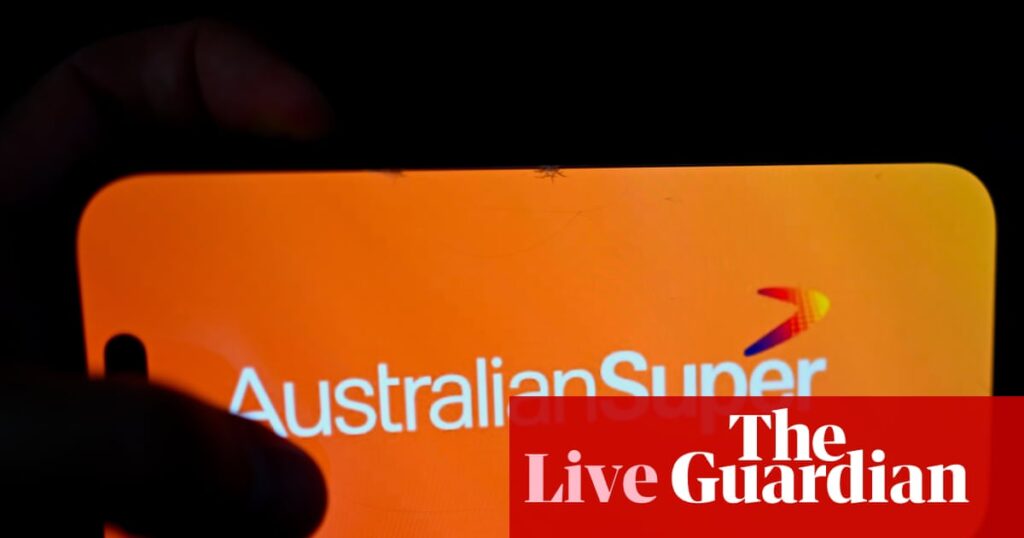Key events
Sarah Basford Canales
Chris Sidoti also suggested there were double standards when it came to governments enforcing domestic law as opposed to international law.
He said:
A sovereign citizen killing cops is no different from the leader of a sovereign state killing kids. The crime is the same. The criminality is the same. What is different is the response.
Sidoti outlined a review of Australia’s engagement with Israel following the ICJ’s ruling could result in trade sanctions with military suppliers within, and to Israel, personal sanctions against military and political members engaging in alleged war crimes and human rights abuses as well as the prosecution of any Australians who served in the Israeli defence force after 7 October 2023 for war crimes and crimes against humanity.
He concluded:
What is the alternative to a functioning international legal system? The only alternative is that might is right. The law of the jungle. The replacement of a rules-based international order with a fools-based international order. International law and the international legal system are the only thing standing between us and the abyss.
Former human rights chief Chris Sidoti urges Australia to take stronger action against Israel

Sarah Basford Canales
Former human rights commissioner Chris Sidoti has urged Australia to respond with action, not “pious expressions of support”, to the international court of justice’s decision last year that a number of Israel’s activities in Gaza and the West Bank amounted to breaches of international law.
In an event addressing some Labor and crossbench MPs and senators at Parliament House on Tuesday afternoon, Sidoti said Australia should have announced a review of its ties to Israel following the ICJ’s provisional finding in July 2024 to ensure Australia was meeting its international obligations.
The ICJ found multiple breaches of international law by Israel, including activities that amounted to apartheid. It ordered Israel to end its occupation of the Palestinian territories as rapidly as possible and make reparations for “internationally wrongful acts”. The Israeli government derided the findings at the time as a “decision of lies” by The Hague.
Sidoti, who was until recently one of three members of a UN commission of inquiry into human rights in Israel and the occupied Palestinian territories, said maintaining international rules-based order required third countries, like Australia, to respond to breaches of the law with action, not “pious expressions of support”.

Krishani Dhanji
Good morning,
Krishani Dhanji here with you, thanks to Martin Farrer for getting us started.
It’s going to be another busy day in parliament today, we’re likely to see more debate on the aged care bill in the Senate – which the government has been feeling the heat on from the opposition and crossbench.
We’ll also likely get more reaction to the rallies over the weekend – after the PM told his partyroom the government needs to give people “space” to avoid going down dangerous rabbit holes, and one MP questioned his claim that “good people” were at that rally. You can read more on that story from my colleagues here.
Let’s get stuck in!
ADF troops join hunt for Dezi Freeman, says Marles
Troops from the Australian defence force have joined the search for Dezi Freeman in Victoria’s north-east a week after the fugitive allegedly shot two police officers, the deputy prime minster, Richard Marles, confirmed.
Speaking to ABC’s 7.30 last night, Marles – who is also the minister for defence – said the ADF had provided a planning specialist and air surveillance assets following a request from Victoria police.
“The Australian defence force will work with the Victorian police as they request our assistance in terms of the particular assets and capabilities that we have to bring Dezi Freeman to justice,” Marles told Sarah Ferguson.
Separately, the deputy PM told the program he “fully expects” the Australian government will meet with US president Donald Trump “in the not-too-distant future”, describing a “sense of optimism” about the alliance.
Marles met with Trump’s right-hand man, US vice-president JD Vance, and US counterpart Pete Hegseth last week to discuss the bilateral economic relationship, critical minerals, national security and Aukus.
US defence officials initially denied the Australian defence minister and US counterpart had met during the last-minute trip to Washington, but later clarified a meeting had indeed taken place.
“Ours is a relationship where we feel a sense of optimism about how we can manage the alliance with the Trump administration and indeed the meetings I had last week only affirmed that,” Marles told 7.30.

Tom McIlroy
AustralianSuper is the country’s largest super fund. It has more than 3.6 million members and $385bn in funds under management.
“I’ve said this behind closed doors and in front of the cameras and I’ll say it again: it would be a disaster for members if governments tried to tell us what to invest in,” Schoder will say in the speech.
“Members carry the investment risk, and it is their money.”
He says governments can build assets, with the plan to sell or lease them later to long-term investors such as super funds. But he warns part of government’s role is to build things that are important for the country but which don’t necessarily make the kind of financial return super funds need.
“We must break the piggy bank mentality,” Schroder says.
“Super is not a trillion-dollar fix-all. It cannot – and should not – be used to solve every complex national problem.”
Hands off the nation’s $4.2tn super pool, boss warns governments

Tom McIlroy
The boss of Australia’s biggest superannuation fund says it would be “a disaster” if governments started directing investments from the country’s $4.2tn retirement savings pool.
AustralianSuper chief executive, Paul Schroder, will address the National Press Club in Canberra today, speaking about superannuation’s role in national renewal.
Schroder will say super funds should be involved much earlier in discussions with governments about the assets they build and run, so investment opportunities which meet a national or community need are identified.
The treasurer, Jim Chalmers, has pushed super funds to send capital towards opportunities that are in “the national interest”. He wants backing for “big national priorities” such as housing and infrastructure.
Welcome
Good morning and welcome to our live politics blog. I’m Martin Farrer with the best overnight stories before Krishani Dhanji takes the controls for the bulk of the day.
The boss of Australia’s biggest superannuation fund will warn today that it would be “a disaster” if governments started to try to dictate how the industry invests its $4.2tn retirement savings pool. In a speech to the National Press Club later today, AustralianSuper chief executive, Paul Schroder, will say the super pot is not a “fix-all” for the nation’s problems. More coming up.
The army has joined the search for the Porepunkah shooting suspect, Dezi Freeman, Richard Marles told ABC’s 7.30 last night, providing a planning specialist and air surveillance help following a request from Victoria police. It comes as an expert on the terrain says Freeman could be evading police heat detection devices by hiding in the area’s disused mines. More details shortly.
The former human rights commissioner, Chris Sidoti, has urged Australia to take stronger action against Israel after the ICJ’s ruling last year that it had acted illegally against the Palestinian people. Sidoti told Labor MPs yesterday that the government must do more than offer “pious expressions of support”.


